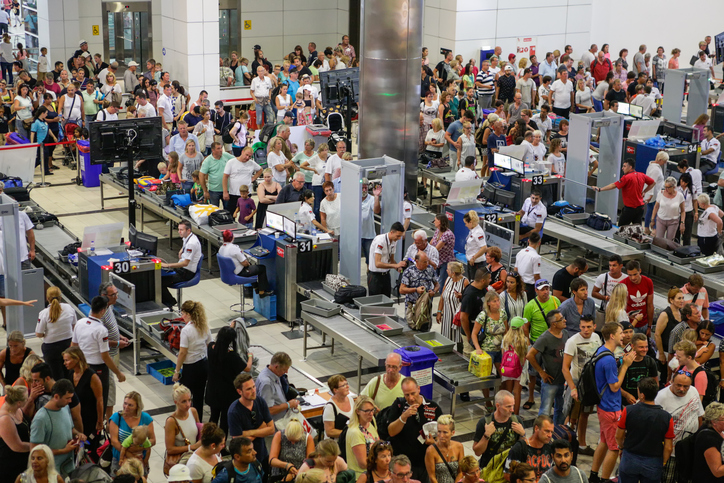December 5, 2017
Supreme Court Issues Orders on Ban 3.0: What This Means
Abed Ayoub, Muslim Ban, Shoba Sivaprasad Wadhia, Sirine Shebaya

by Shoba Sivaprasad Wadhia, Samuel Weiss Faculty Scholar and founding director of the Center for Immigrants’ Rights Clinic at Penn State Law - University Park, Sirine Shebaya, senior staff attorney, Muslim Advocates and , and Abed Ayoub, legal director, American-Arab Anti-Discrimination Committee
*This piece was originally posted on Medium.
What happened at the Supreme Court? On December 4, the Supreme Court issued orders staying the injunctions placed on certain aspects of Ban 3.0 by federal district courts in Hawaii and Maryland. What this means is the third version of the ban can take full effect pending a decision of the Government’s appeal in the Fourth and Ninth Circuit Courts of Appeals and pending a decision of the Government’s petition to the Supreme Court to hear the case. Justices Sotomayor and Ginsburg would have denied the application giving rise to these orders.
Did the Supreme Court give a reason for these orders? No. The Court did not provide a specific reason for the orders beyond the fact that both cases would be heard on an “expedited basis” at the appellate courts. This means that the Supreme Court expects the decisions soon after oral arguments which are scheduled for December 6 at the Ninth Circuit and December 8 at the Fourth Circuit.
Did the Supreme Court Rule on the Legality of the ban? No. The Supreme Court did not make a decision on the legality of the ban. The legal challenges to Ban 3.0 have been wide ranging and were successful at the Hawaii and Maryland courts. The challenges have been constitutional and statutory. Whereas the Hawaii court focused on the statutory arguments to conclude that Ban 3.0 violates the immigration statute by denying immigrant visas based on nationality, the Maryland court focused on the likelihood that Ban 3.0 violates the Establishment Clause of the First Amendment to the U.S. Constitution.
What about pending cases at the courts of appeals? The Government appealed the Maryland and Hawaii decisions. Oral arguments are scheduled for December 6 in the Ninth Circuit and for December 8 in the Fourth Circuit.
Who is covered by Ban 3.0?
- Chad, Libya and Yemen: all immigrants and those entering as tourists or business travelers
- Iran: all immigrants and nonimmigrants, EXCEPT F, J and M visa holders (extra scrutiny)
- North Korea and Syria: all immigrants and nonimmigrants
- Somalia: immigrants (and nonimmigrants subject to extra scrutiny)
- Venezuela: certain nonimmigrants government officials and their family members
What is the scope of the ban? These suspensions only apply to people who:
- are outside the United States on the applicable effective date
- do not have a valid visa on the effective date
- do not qualify for a visa or other travel document by the terms of the Proclamation
Who is exempt from Ban 3.0?
- Lawful permanent residents (green card holders)
- Foreign nationals admitted or paroled to the United States on or after the effective date
- Foreign nationals with travel documents that are not visas that are valid before or issued after the effective date
- Dual nationals traveling on a passport that is not one of the affected countries
- Those travelling on a diplomatic or related visa
- Foreign nationals who have already been granted asylum, refugees who have already been granted admittance, and those who have been granted withholding of removal, advanced parole, or protections under the Convention Against Torture
If I am covered by the ban can I still enter the country? A consular officer may, on a case-by-case basis and within their discretion, grant a waiver to affected immigrants for certain reasons. The person seeking entry must prove that:
- denying entry would cause the foreign national undue hardship;
- entry would not pose a threat to the national security or public safety of the United States; and
- entry would be in the national interest.
Please seek the advice of an immigration attorney before seeking a waiver.
What should I do if I am from one of the eight countries, outside the United States and want to travel to the United States? If you are from one of the eight countries, are covered by the ban and do not yet have a visa then cannot obtain one at this time, unless you qualify for a waiver. If you are from one of the countries and do have a valid visa on the effective date (which as of this writing is unclear) you may be able to enter the United States. If you choose to travel, please talk to an immigration attorney and arrange for assistance by a lawyer or advocate at the airport you are flying into. Finally, please make sure you know and understand your rights.
What should I do if I am from one of the eight countries, am in the United States with a valid visa and want to travel outside the country? The third version of the ban states that no visas will be revoked and that those with a valid visa on the effective date (which as of this writing is unclear) are not covered by the ban. Nevertheless, travel outside the United States at this time carries a lot of risk. If you plan to travel, please visit an immigration attorney so you can understand the risks and responsibilities of leaving the United States. Also, please arrange for assistance by a lawyer or advocate at the airport you are flying back into.
Where can I find more resources?




